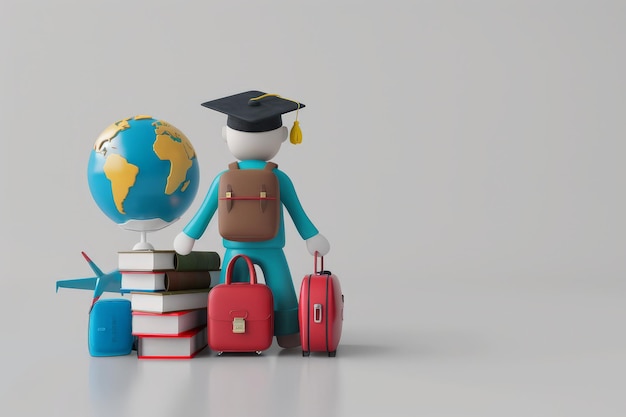Education Travel Stories have become a transformative tool for modern learners, blending academics, culture, and adventure into unforgettable experiences. Students traveling for educational purposes gain exposure to new ideas, diverse cultures, and real-world applications of classroom lessons. These journeys not only foster knowledge but also encourage curiosity, independence, and global awareness.
Whether it’s visiting ancient historical sites, participating in scientific expeditions, or engaging with local communities, these travel stories demonstrate that education extends beyond traditional classrooms. Students around the world are increasingly inspired by such experiences to broaden their perspectives and explore new academic and career paths.
Table of Contents
ToggleCultural Exploration Through Education Travel Stories
Many Education Travel Stories revolve around immersing students in diverse cultures. For instance, high school learners from France visiting Japan for a cultural exchange program experience firsthand the customs, traditions, and cuisine they had only read about in textbooks. This type of exposure makes learning tangible and memorable, instilling appreciation for global diversity.
Similarly, trips to historical sites in Europe or Asia allow students to witness architecture, art, and literature from different eras. Engaging with local guides and experts provides context that textbooks often cannot capture. These experiences encourage students to connect academic knowledge with real-world understanding, fostering deeper comprehension and retention.
Scientific Discoveries and Experiential Learning
Educational travel often intersects with scientific exploration. Students participate in field research, environmental studies, and innovation labs, experiencing science in action. For example, biology students exploring coral reefs in Australia or the Amazon rainforest gather data, study ecosystems, and collaborate with local researchers.
These Education Travel Stories highlight how experiential learning enhances critical thinking, problem-solving, and analytical skills. By witnessing science in the field, students not only solidify theoretical concepts but also develop a sense of responsibility toward environmental conservation and global challenges.
Community Engagement and Social Responsibility
Many educational travel programs incorporate social initiatives, allowing students to engage in volunteer work and community development. Students might build sustainable water systems in rural areas, teach English to local children, or participate in health awareness campaigns.
Stories of students making tangible contributions inspire peers to see education as a means of creating positive change. Experiencing challenges and successes in real-world projects reinforces empathy, leadership, and civic responsibility. These impactful moments often become some of the most cherished parts of students’ educational journeys.
Digital Platforms Amplifying Education Travel Stories
With the rise of social media and digital storytelling, Education Travel Stories reach audiences far beyond the immediate participants. Blogs, vlogs, and social media posts allow students to document their adventures, share insights, and inspire peers globally.
A video showcasing students visiting a technological innovation hub in Silicon Valley can motivate learners worldwide to explore STEM fields. Interactive online platforms encourage discussions, reflections, and collaborations, turning individual journeys into shared global learning experiences.
Interdisciplinary Learning Through Travel
Educational travel often bridges multiple disciplines. Literature students may visit sites related to classic novels, while art students explore international galleries. Business students attend corporate workshops abroad, gaining insights into global markets.
These Education Travel Stories demonstrate that learning is interconnected and best understood through real-world exposure. Students develop creativity, adaptability, and critical thinking as they navigate diverse subjects, preparing them for dynamic academic and professional futures.
Personal Growth and Lifelong Curiosity
Beyond academics, educational travel fosters personal development. Students learn resilience, independence, and cultural sensitivity while navigating new environments. They develop communication and leadership skills through collaborative projects and interactions with peers and mentors worldwide.
Stories of students trekking through remote landscapes, presenting research to international audiences, or participating in cultural festivals often inspire others to pursue similar experiences. These journeys ignite curiosity and a passion for lifelong learning, emphasizing that education is a continuous adventure.
Inspiring Global Perspectives
Ultimately, Education Travel Stories encourage students to view the world as a classroom. Exposure to diverse cultures, scientific advancements, and community projects cultivates global awareness and empathy. Students return with new insights, motivated to pursue innovative ideas and contribute meaningfully to society.
From exploring ancient civilizations to participating in technological innovations abroad, these stories show that education is not confined to classrooms—it thrives in experiences, connections, and shared adventures that inspire generations of learners worldwide.
Read also:
nfl teams that have never won a super bowl
never won a super bowl
net worth of yashasvi jaiswal
which nfl teams have never won a superbowl
